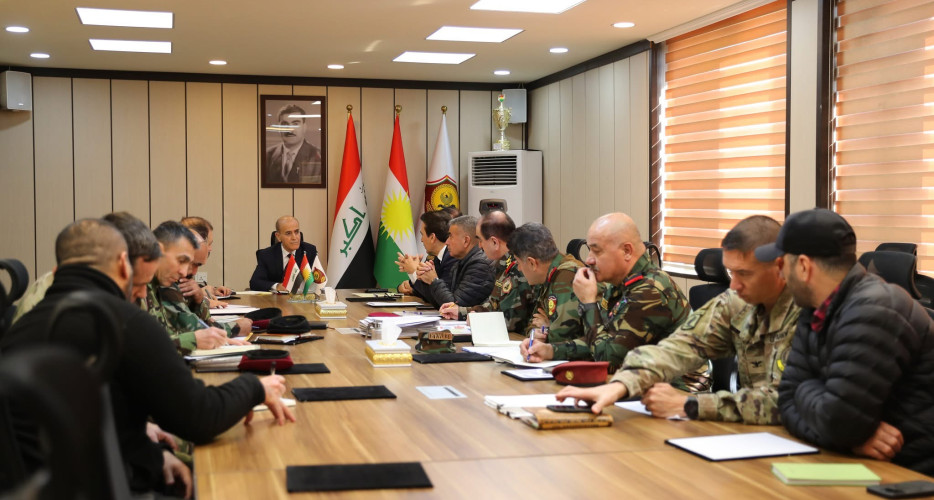
Peregraf
In a step towards reforming and unifying the Peshmerga forces, Shorsh Ismail, the Minister of Peshmerga Affairs, announced the establishment of two Command Regions comprising 11 military brigades under the Ministry of Peshmerga’s leadership. The announcement came following a high-level meeting at the Ministry of Peshmerga today, attended by key Kurdish military leaders and international advisors.
“The meeting focused on a project to establish two Command Regions and build the military infrastructure needed for a unified Kurdish force capable of protecting the sacred land of Kurdistan,” said Minister Ismail. Present at the meeting were senior officials from the Ministry of Peshmerga, including the Deputy Minister, Chief of Staff, and General Secretary, as well as commanders of Forces 70 and 80, Infantry Brigades 2 and 4, and Colonel Brandstetter, head of the Coalition Military Advisory Team in Kurdistan Region.
During the meeting, it was decided that the two Command Regions, tasked with reorganizing all Peshmerga forces under a unified framework, will become operational at the start of 2025. Additionally, the foundation for a unified military accounting unit for the Kurdistan Peshmerga Forces was approved.
For the past seven years, the Kurdistan Region has pursued the ambitious goal of unifying and professionalizing its Peshmerga forces. This effort, supported by international partners such as the United States and coalition forces, aims to create a politically neutral and professional military force. However, progress has been slow due to political friction between the Kurdistan Democratic Party (KDP) and the Patriotic Union of Kurdistan (PUK).
Despite these challenges, Kurdish leaders remain committed to achieving full unification, with strong support from international allies providing training, resources, and strategic advice. The reform initiative is seen as critical for the future stability and security of the Kurdistan Region.
The unification of the Peshmerga forces will not only strengthen the region’s defense capabilities but also promote long-term peace and prosperity by ensuring the military serves all Kurdish citizens rather than partisan interests. As the Kurdistan Region continues to navigate complex political and security challenges, the establishment of a unified Kurdish army marks a pivotal step towards safeguarding its future.